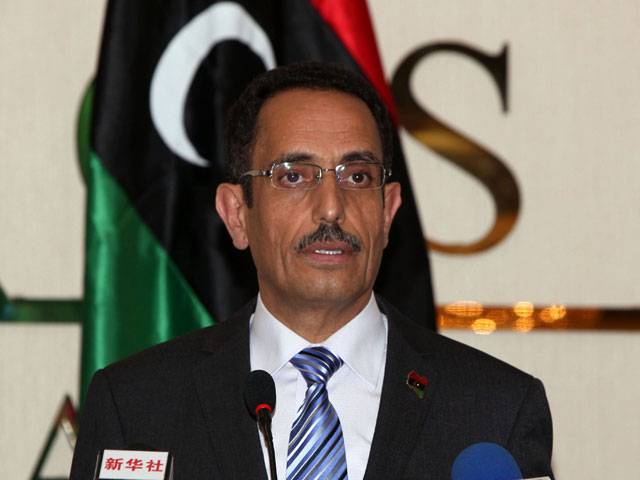BENGHAZI - The deputy head of Libya’s National Transitional Council resigned on Sunday after angry protests, as the ruling body faced its first serious challenge since the ouster of Muammar Gaddafi.
The NTC also postponed the adoption of the new election law to January 28 after it met at a secret location following attacks on Saturday on its offices in Benghazi, the eastern city which first rose up against Gaddafi last year.
NTC deputy head Abdel Hafiz Ghoga told AFP he had resigned from his post, as thousands of students demonstrated on Sunday against him in Benghazi’s University of Ghar Yunis where he was manhandled three days ago.
“My resignation shows that the NTC is a tribune for fighting for a cause and not a governing body. We are not looking for posts,” Ghoga said.
He also told satellite broadcaster Al-Jazeera he was stepping down in the national interest. He said in a telephone call with the channel that his decision comes after “recent events,” a reference to protests in Benghazi where protesters chanted slogans against him and opposed his presence in the council.
Ghoga, who served as official spokesman for the NTC, had come under increasing opposition from Benghazi residents who accuse him of opportunism because of his belated defection from the Gaddafi regime. He was mobbed by students on Thursday and had to flee the university after a tirade of abuse from the angry crowd.
On Sunday he was again the target of about 4,000 students who chanted anti-Ghoga slogans at the university and condemned the arrest of 11 of their colleagues for allegedly manhandling him on Thursday. The NTC has also faced the fury of angry Benghazi residents for what they say is a “non-transparent” body, marginalising injured former rebels who fought Gaddafi and choosing members who were previously loyal to the slain dictator.
The NTC staunchly backed Ghoga after Thursday’s incident, saying that “every attack or aggression against the National Transitional Council represents an attack on the sovereignty of the Libyan people and its glorious revolution.” Ghoga represented the “highest legitimate authority” until the election of a constitutional assembly in June, an NTC statement said on Thursday. But on Saturday the NTC, which spearheaded the revolt against Gaddafi and took full control of the country after his death, itself became the target of protesters when several home-made bombs were thrown at its Benghazi offices. Protesters armed with stones and iron bars hurled the grenades and also stormed into the building before setting its front ablaze, witnesses and council members told AFP.
They threw plastic bottles at NTC chief Mustafa Abdel Jalil, who is respected across Libya for his active role in the anti-Gaddafi rebellion. He had to be escorted out of the premises. “They set fire to the front (of the office), broke windows and damaged one of the armoured cars that was there,” said Fathi Baja, the NTC’s political affairs chief, describing Saturday’s incident.
He said he did not know who was behind the attack. The violence — the first to target the NTC — forced its members to meet at an undisclosed location on Sunday to discuss the nation’s new electoral law.
NTC member Abdelrazzak al-Arabi told AFP that the meeting postponed the adoption of the law to January 28, adding that the law was expected to scrap an article reserving 10 percent of the seats of the proposed 200-member constituent assembly for women.
Several women’s bodies and rights groups had criticised the article.
Arabi said the NTC had set up an election commission comprising 17 members to oversee future polls.
Tuesday, April 16, 2024
Libyan NTC deputy head quits after protests

Israeli Air Force finalizes preparations for possible attack on Iran
8:21 AM | April 16, 2024
Rising street crime alarms twin cities’ residents
April 16, 2024
Arrest made in deadly bus crash; owner still at large
April 16, 2024
Officials held responsible for patient’s drug denial
April 16, 2024
Police book 7 for torturing Christian family
April 16, 2024
Policing Reforms
April 15, 2024
Storm Safety
April 15, 2024
Deterrence Restored
April 15, 2024
IMF Challenges
April 14, 2024
Security Crisis
April 14, 2024
Suicide awareness
April 15, 2024
Biden’s dilemma
April 15, 2024
Over dependence on technology
April 14, 2024
Education reform call
April 14, 2024
Brain drain
April 14, 2024
ePaper - Nawaiwaqt
Advertisement
Nawaiwaqt Group | Copyright © 2024





